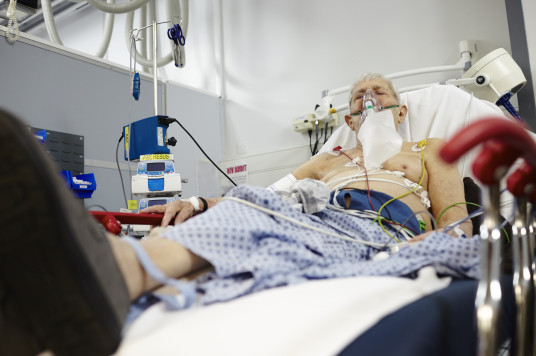Specialised stroke units are saving 96 more lives a year
Last week BBC Health News published an article reporting on new research which has shown 96 more lives are being saved every year thanks to specialised stroke units like the one we have here at St George’s Hospital.
The new findings are the result of a study commissioned by the National Institute for Health Research and led by University College London. The study looked at stroke survival rates in London and Manchester comparing the numbers before and after the implementation of specialised stroke units. These figures were then compared with the rest of England.
The researchers found that the stroke survival rate had increased by 1.1% in London, which is the equivalent of 96 lives a year and that the length of time patients spent in hospital has reduced by 9% in Manchester and 7% in London.
These important findings show how effective the London stroke unit model is. St George’s is one of the eight London Hyper Acute Stroke Units (HASU) serving a population of 1.6 million people in south west London. We treat close to 1200 stroke patients a year.
Our Emergency Department CT scanner alongside onsite Neurosurgery, Neuroradiology, Neurological Intensive care Unit and Vascular Surgery facilities mean that we can provide rapid access to the imaging and care stoke patients need.
Stroke is the leading cause of adult disability in the UK and the second commonest cause of death in London. New treatments are required to improve outcomes for patients with stroke. Last year St George’s recruited the largest number of stroke patients into medical trials and is currently one of eight Hyperacute Stroke Research Centres in England, looking at improving outcomes for stroke patients through advanced imaging and novel therapies.
We have also worked with community teams to develop an early discharge pathway specifically for stroke patients so that they can have timely rehabilitation in their own home and spend less time in hospital.
We continue working to improve stroke care and identify innovative, more effective treatment options for patients through research. More information and useful links can be found on our Stroke Care website.


